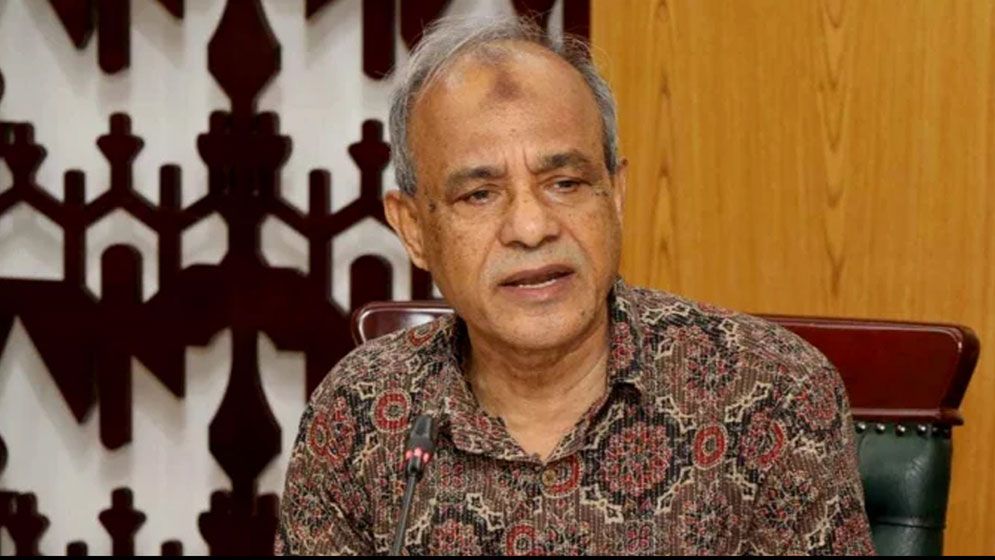A recent incident in Dhaka’s Lalmatia, where two young women were confronted over smoking, has sparked widespread debate, culminating in police intervention. However, the remarks made by Home Affairs Adviser lieutenant general (retd.) Jahangir Alam Chowdhury in response to the situation raise serious concerns about the proper enforcement of the law and the state’s responsibility in ensuring equal rights for all citizens.
Let’s begin by analyzing his statement. He claimed that smoking in public places is a punishable offence for both men and women. However, under the Smoking and Tobacco Products Usage (Control) Act, 2005, the term “public place” is clearly defined and does not include open streets, alleys, or roadside tea stalls. Despite this, the adviser framed his remarks as if the two women had violated the law — an assertion that is legally inaccurate.
This raises an important question: do ordinary citizens have the authority to intervene simply because someone is smoking?
According to the law, only an “Authorized Officer” has the right to enforce smoking restrictions in designated public places. If the individuals who confronted these women were not legally authorized, does their interference not amount to a violation of individual’s liberties?
As per Article 32 of the Bangladeshi Constitution, “Every citizen’s life and personal liberty shall be protected by law.”
This means that unless an individual commits any legally defined offence, their personal choices should not be subject to public interference.
In this case, while the home affairs adviser categorized the women’s smoking as an offence, the real offenders were those who violated their personal space and later launched a physical attack on them.
And here lies the most alarming issue: why did the home affairs adviser choose to overlook the assault?
Eyewitness accounts suggest that the attackers first hurled verbal abuse at the women, which falls under Section 509 of the Penal Code of 1860 — a punishable offence.
This law states that, “Whoever, intending to insult the modesty of any woman, utters any word, makes any sound or gesture, or exhibits any object, intending that such word or sound shall be heard, or that such gesture or object shall be seen by such woman, shall be punished with simple imprisonment for a term which may extend to one year, or with fine, or with both.”
Furthermore, the individuals who physically attacked the women could also be charged under Section 354, which states that “Whoever assaults or uses criminal force to any woman, intending to outrage or knowing it to be likely that he will thereby outrage her modesty, shall be punished with imprisonment for a term which may extend to two years, or with fine, or with both.”
Yet, the home affairs adviser, while condemning smoking, remained silent on these violations. His comments subtly legitimized the actions of the aggressors. Was this an indirect endorsement of mob violence?
The home affairs adviser further stated that “everyone should practice restraint during Ramadan.” But is restraint meant only for women? If restraint is expected, should it not also apply to those who verbally abused and physically assaulted the two women? While a detailed discussion was made regarding women smoking, there was no condemnation of those who engaged in harassment and violence. Is this Justice?
The adviser’s statement reflects a deeply ingrained institutional bias against women. When a senior government official publicly makes such remarks, what message does it send to society?
In a civil society, the state is responsible for ensuring the fair enforcement of laws and protecting the personal liberties of all citizens. However, in this case, we see a state representative distorting legal interpretations while implicitly backing the attackers.
What Needs to Change?
- Proper enforcement of laws – Citizens should not be allowed to interfere in personal choices unless explicitly authorized by law. Those who violate this should face legal consequences.
- Strict action against violence against women – Verbal abuse, physical assault, and public harassment must be treated as serious offences, with perpetrators held accountable.
- Responsible statements from state officials – Officials like the home affairs adviser must ensure their remarks are legally accurate and promote fairness, not bias.
- Respect for women’s personal freedom – Religious sentiments are important, but they cannot be used as a pretext to suppress personal rights guaranteed by the constitution.
The adviser’s comments reveal a discriminatory attitude towards victims and a fundamental misinterpretation of the law. If the state continues to uphold such biased positions, ensuring women’s rights and safety in Bangladesh will remain an uphill battle. The time has come for greater accountability from the authorities and a commitment to upholding equal rights for all citizens.


